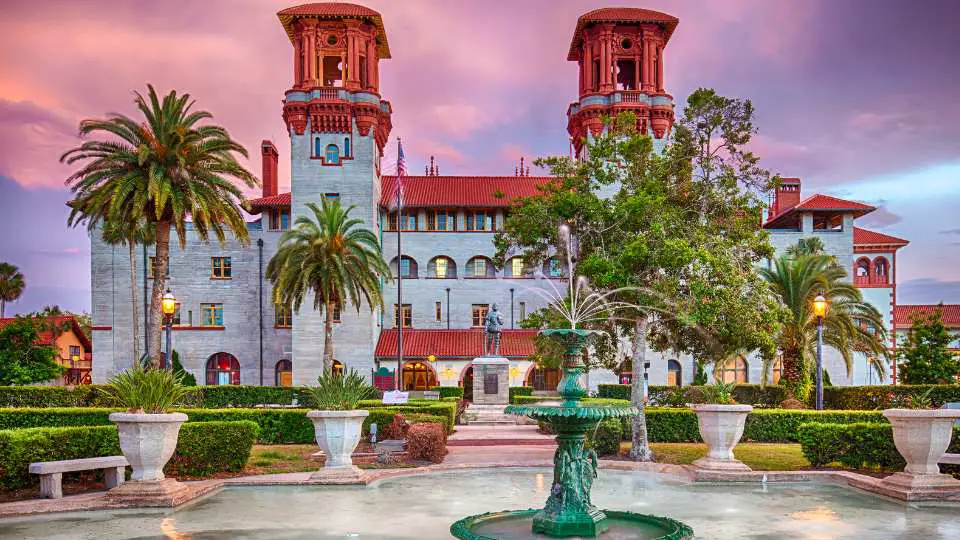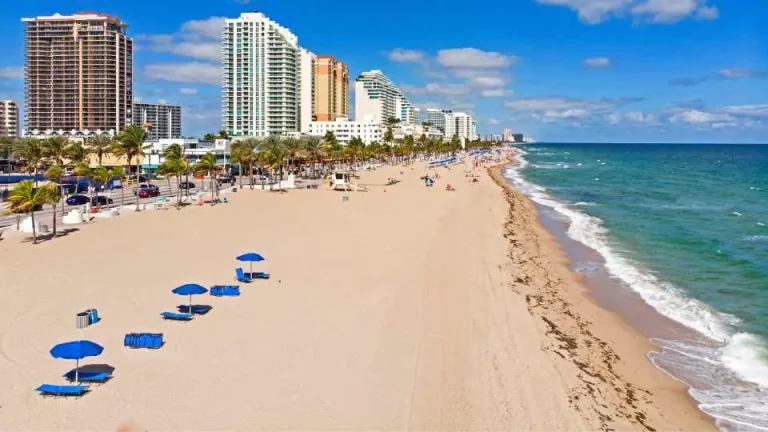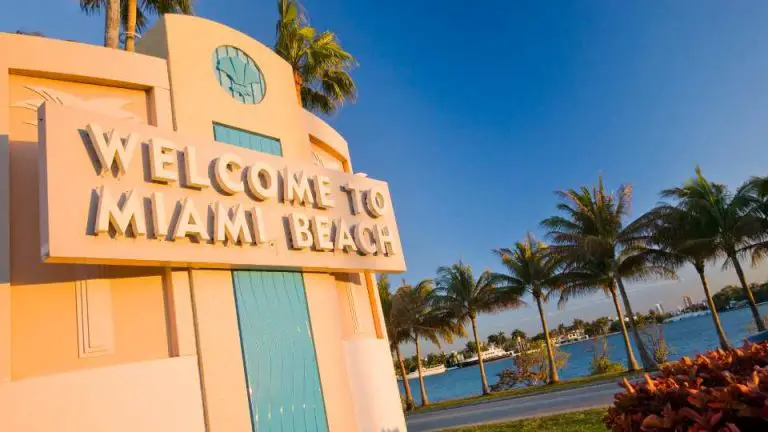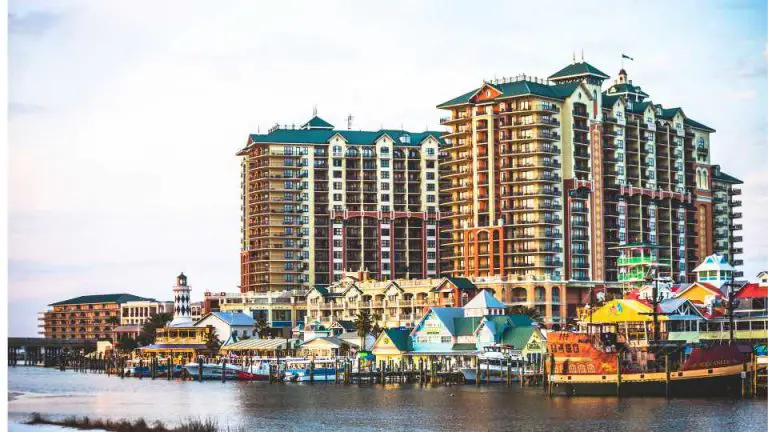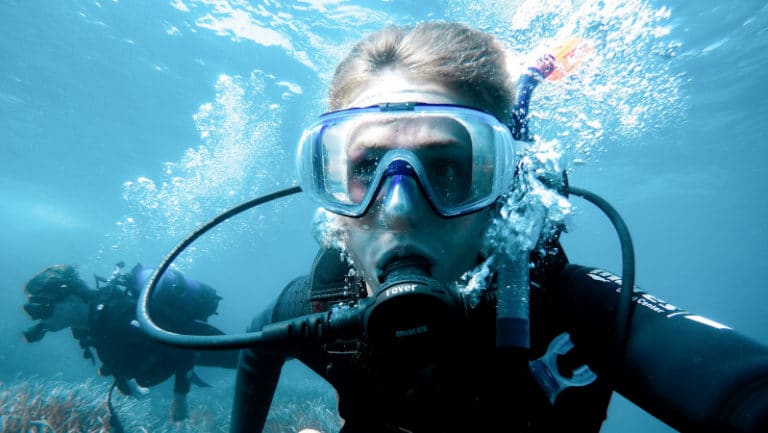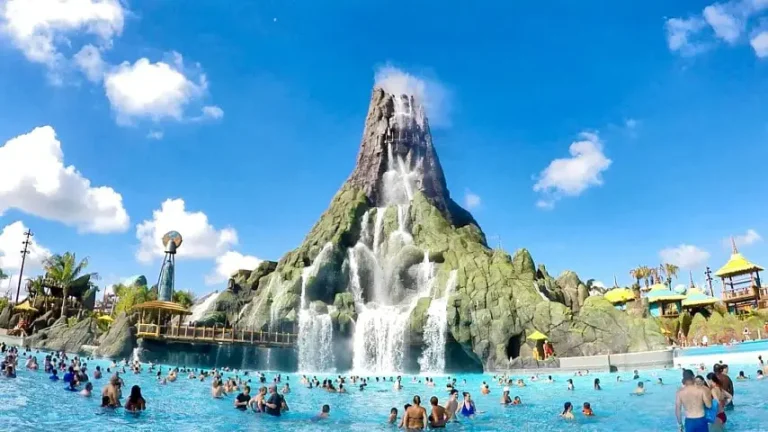The Educational Value of Travel in Florida: Discovering History and Ecology Beyond the Classroom
Florida offers a wealth of educational opportunities for travelers of all ages. From historical sites to natural wonders, the Sunshine State provides hands-on learning experiences that go beyond traditional classroom settings. Travel in Florida can enhance understanding of geography, history, science, and culture while developing critical thinking and problem-solving skills.
Visitors to Florida can explore diverse ecosystems like the Everglades, witness space exploration history at Kennedy Space Center, or dive into naval aviation at the National Naval Aviation Museum in Pensacola. These experiences bring textbook concepts to life, allowing travelers to engage with subjects in meaningful ways.
Educational travel in Florida also fosters cultural awareness and language skills. Exposure to the state’s multicultural communities, especially in areas like Miami, provides opportunities to practice foreign languages and gain insights into different cultures. This immersive learning environment creates lasting memories and knowledge that extend far beyond the trip itself.
The Importance of Experiential Learning
Experiential learning through travel offers unique educational opportunities. It combines real-world experiences with academic concepts, enhancing retention and understanding.
Hands-On Learning Through Travel
Travel provides immersive educational experiences that engage multiple senses. Students interact directly with new environments, cultures, and ideas. This hands-on approach helps solidify abstract concepts learned in traditional classrooms.
In Florida, students can explore diverse ecosystems like the Everglades. They observe wildlife, plant species, and geological formations firsthand. These encounters make scientific principles tangible and memorable.
Historical sites bring the past to life. Visits to places like St. Augustine allow students to walk through centuries-old streets. They can touch ancient coquina walls and visualize colonial life.
Homeschooling and Travel Integration
Homeschooling families often incorporate travel into their curriculum. This integration allows for flexible, personalized learning experiences. Parents can align trips with specific educational goals and interests.
Florida’s attractions offer numerous educational opportunities. The Kennedy Space Center provides hands-on science and technology lessons. Art museums in Miami expose students to diverse cultural expressions.
Natural landscapes become living classrooms. Beaches teach marine biology, while state parks offer geology lessons. These experiences complement textbook learning with real-world applications.
Travel also develops important life skills. Students learn to navigate new places, manage budgets, and interact with diverse groups of people.
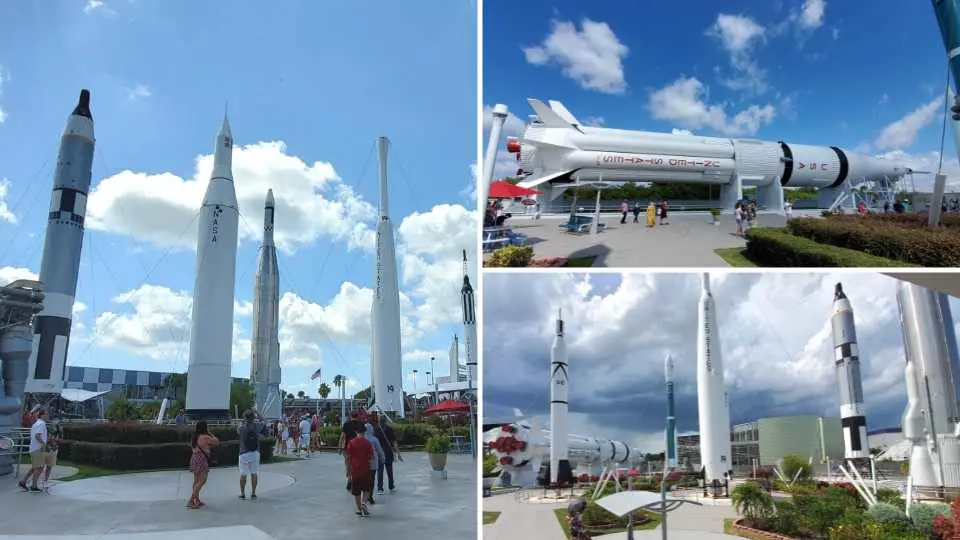
Exploring Museums in Florida
Florida’s museums offer rich educational experiences for visitors of all ages. These institutions blend history, art, science, and culture to create immersive learning environments.
Museum-Based Educational Programs
Many Florida museums provide tailored programs for students and lifelong learners. The Museum of Florida History offers activities that align with state standards and promote critical thinking skills. These programs cover topics from Florida’s indigenous peoples to modern technology.
At the Phillip and Patricia Frost Museum of Science, students can participate in Learning Lab packages. These hands-on experiences allow exploration of scientific concepts through age-appropriate activities.
The Museum of Science and Industry (MOSI) in Tampa focuses on technology and innovation. Its interactive exhibits encourage visitors to engage with cutting-edge scientific developments.
The Role of Museums in STEM Education
Florida’s museums play a crucial role in fostering interest in STEM fields. The Frost Museum of Science showcases various scientific disciplines through its exhibits and programs. Visitors can explore physics concepts in interactive displays.
MOSI emphasizes technology education, offering exhibits on robotics, space exploration, and renewable energy. These experiences help students connect classroom learning to real-world applications.
Art museums, like the Salvador Dalí Museum in St. Petersburg, integrate technology into their exhibits. Digital presentations and virtual reality experiences enhance visitors’ understanding of artistic techniques and historical contexts.
Wildlife and Natural Habitats
Florida’s diverse ecosystems offer rich educational opportunities for visitors. The state’s aquariums and wildlife refuges provide immersive experiences to learn about native species and conservation efforts.
Aquariums as Educational Platforms
Florida’s aquariums serve as interactive classrooms for marine life education. Visitors can observe various aquatic species up close, from colorful tropical fish to majestic sharks and rays.
Many aquariums offer guided tours and hands-on exhibits. These experiences allow guests to touch marine creatures and learn about their habitats.
Aquariums often showcase Florida’s unique ecosystems, such as coral reefs and mangrove swamps. This helps visitors understand the importance of preserving these delicate environments.
Educational programs at aquariums cover topics like marine biology, conservation, and environmental protection. These initiatives aim to inspire stewardship of Florida’s aquatic resources.
Wildlife Refuges and Conservation Education
Florida’s wildlife refuges provide sanctuary for numerous species and serve as outdoor classrooms. Visitors can observe animals in their natural habitats while learning about ecosystem dynamics.
Refuges often feature interpretive centers with exhibits on local flora and fauna. These facilities offer insights into conservation challenges and success stories.
Guided nature walks and bird-watching tours are common at many refuges. Expert naturalists lead these excursions, sharing knowledge about native species and their behaviors.
Some refuges focus on specific endangered species, such as the Key deer or Florida panther. These specialized areas highlight conservation efforts and the importance of protecting threatened wildlife.
Refuges also educate visitors about the impact of human activities on natural habitats. This knowledge empowers travelers to make environmentally conscious decisions in their daily lives.
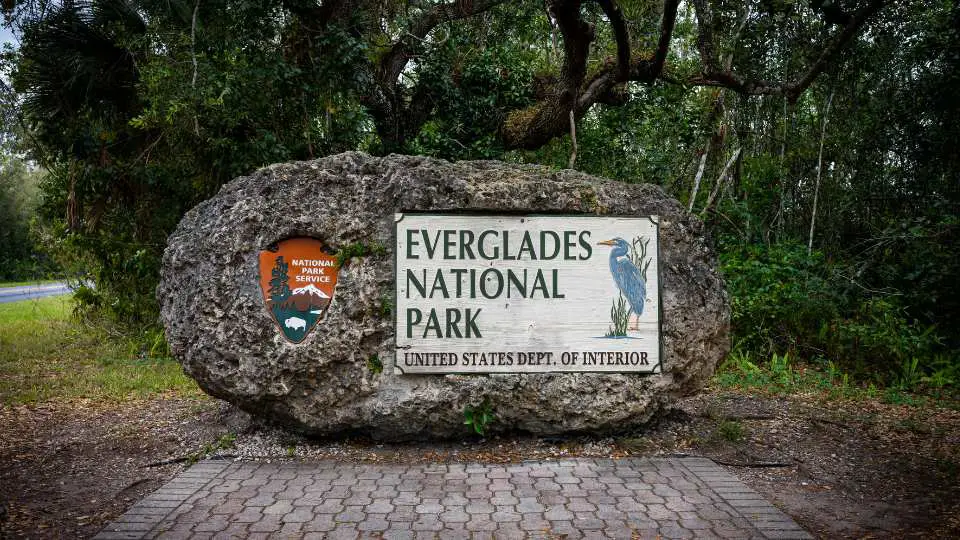
Historical Landmarks and Sites
Florida’s rich history comes to life through its many preserved landmarks and sites. Visitors can immerse themselves in centuries of stories, from early Spanish settlements to the Space Age, at locations across the Sunshine State.
Learning from Historic Sites
The Castillo de San Marcos in St. Augustine stands as a testament to Florida’s Spanish colonial past. Built in the late 1600s, this stone fortress offers insights into 17th-century military architecture and life. Dry Tortugas National Park, accessible by boat or seaplane, encompasses seven small islands and Fort Jefferson, a massive 19th-century coastal fortification.
The Kennedy Space Center on Merritt Island showcases Florida’s role in space exploration. Visitors can see real spacecraft and learn about NASA’s missions. In Key West, the Ernest Hemingway Home provides a glimpse into the famous author’s life and work in the 1930s.
Cultural and Historical Tours
Guided tours enhance the educational value of Florida’s historic sites. St. Augustine’s trolley tours cover over 400 years of history, stopping at landmarks like the Oldest Wooden Schoolhouse. In Miami, boat tours of Biscayne Bay pass by the stilt houses of Stiltsville, offering a unique perspective on the area’s maritime culture.
The Lightner Museum in St. Augustine, housed in a former Gilded Age hotel, offers guided walks through its eclectic collection of 19th-century artifacts. At the Barnacle Historic State Park in Coconut Grove, visitors can tour Ralph Middleton Munroe’s 1891 home and learn about early pioneer life in South Florida.
Science and Fun at Theme Parks
Florida’s theme parks offer thrilling experiences that blend entertainment with educational opportunities. Visitors can explore scientific concepts through exhilarating rides and discover behind-the-scenes insights during specialized tours.
The Physics Behind Roller Coasters
Roller coasters demonstrate key physics principles in action. As cars climb the first hill, they gain potential energy. At the peak, this converts to kinetic energy as they accelerate down the track.
G-forces come into play during sharp turns and loops. Riders experience weightlessness at the top of hills and increased pressure in valleys. These sensations result from changes in velocity and direction.
Modern coasters use magnetic braking systems and computer controls to ensure safety. Some parks offer physics classes or workshops that explain these concepts using their attractions as real-world examples.
Educational Tours at Amusement Parks
Many Florida theme parks provide guided tours that offer educational value beyond typical visitor experiences. These tours often focus on engineering, animal conservation, or cultural topics.
At Universal Studios, the VIP Experience includes a behind-the-scenes look at special effects and film production techniques. Disney’s Keys to the Kingdom tour explores the park’s history and operational secrets.
SeaWorld offers marine life tours led by zoologists. Participants learn about animal care, conservation efforts, and marine ecosystems. Some tours even allow guests to interact with animals under expert supervision.
These educational experiences cater to various age groups and interests. They provide unique learning opportunities that complement classroom education in an engaging, hands-on environment.
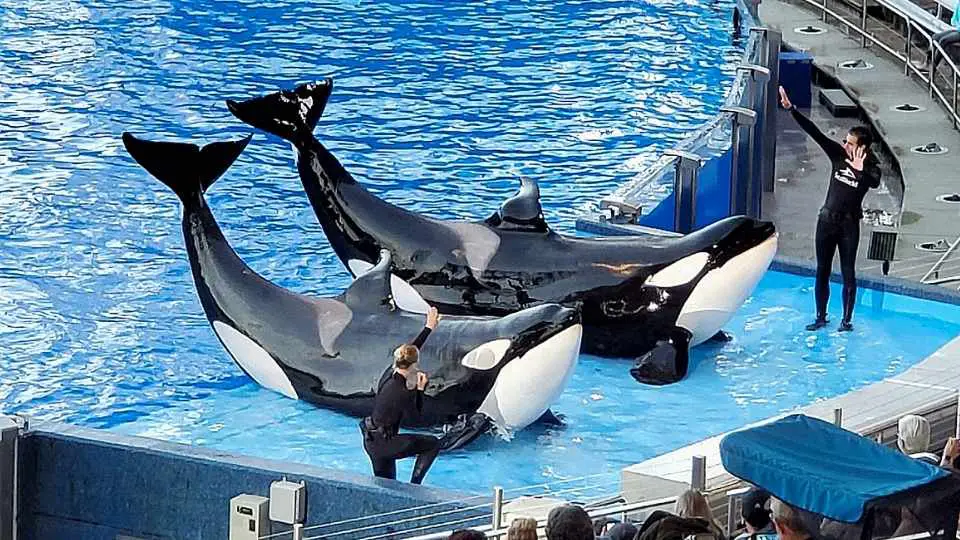
Alligators and Education at Gatorland
Gatorland offers unique educational opportunities centered around alligators and wildlife conservation. The park blends entertainment with learning, providing visitors insights into these ancient reptiles and their ecosystems.
Gatorland: A Case Study in Wildlife Education
Gatorland, spanning 110 acres, serves as both a theme park and wildlife preserve. The facility houses over 2,000 American alligators, from hatchlings to adults. Visitors can observe rare albino and leucistic alligators, with Gatorland home to two of only 12 known leucistic alligators worldwide.
The park’s educational programs focus on alligator biology, behavior, and conservation efforts. Guided tours and interactive exhibits teach visitors about alligator anatomy, habitats, and their role in Florida’s ecosystems.
Gatorland’s conservation initiatives highlight the American alligator’s recovery from endangered status. This success story demonstrates effective wildlife management and protection strategies.
For school groups, Gatorland offers tailored educational field trips. These experiences combine hands-on learning with wildlife observation, reinforcing classroom lessons about ecology and animal science.
Field Trips and Student Engagement
Field trips offer unique opportunities for hands-on learning and real-world experiences that enhance student engagement. These educational excursions provide valuable insights and foster a deeper understanding of academic subjects.
Maximizing the Benefit of Educational Field Trips
Careful planning is essential to maximize the educational value of field trips. Teachers should set clear learning objectives and integrate pre-trip activities into the curriculum. This preparation helps students connect classroom concepts to real-world applications.
During the trip, interactive elements and guided exploration keep students engaged. Encourage critical thinking by asking thought-provoking questions and assigning specific tasks or observations.
Post-trip discussions and projects reinforce learning outcomes. Students can share their experiences, reflect on new knowledge, and apply insights to future lessons. This follow-up cements the educational benefits of the field trip experience.
Innovative Educational Trips in Central Florida
Central Florida offers diverse field trip options that cater to various subjects and age groups. The Phillip and Patricia Frost Museum of Science provides hands-on STEM experiences through its Learning Lab program. Students participate in age-appropriate scientific activities, fostering curiosity and experimentation.
Theme parks in the area offer educational programs beyond entertainment. For example, some parks feature behind-the-scenes tours that explore engineering, animal conservation, or marine biology.
Natural reserves and state parks provide outdoor classrooms for environmental studies. Students can observe ecosystems firsthand, conduct field research, and learn about conservation efforts in Florida’s unique habitats.
